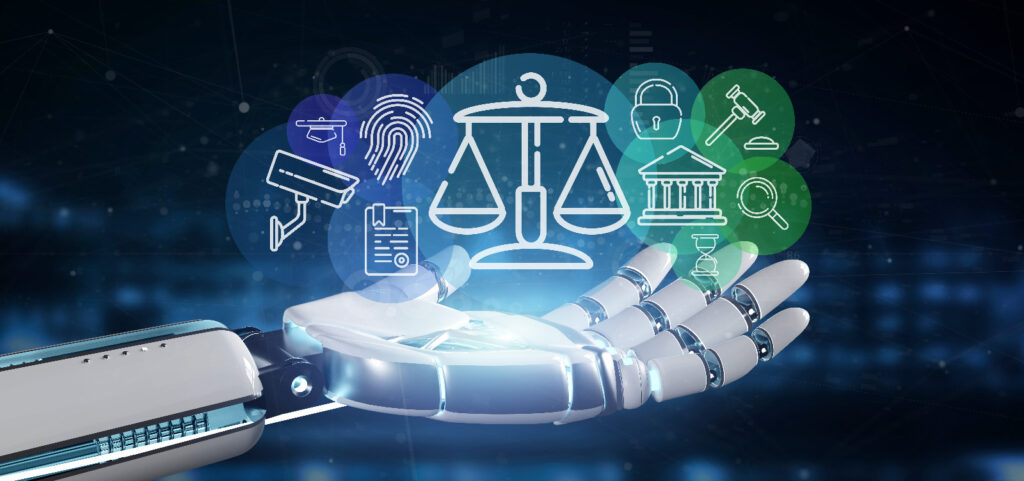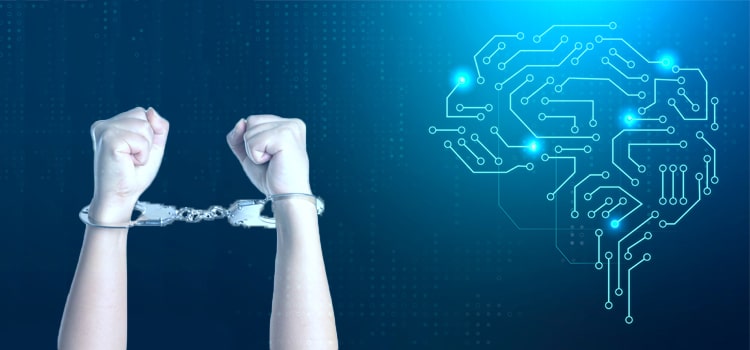Artificial Intelligence (AI) is no longer a futuristic concept—it’s already reshaping many sectors, including the criminal justice system. One of the most significant and controversial areas is how AI is used in criminal defence. From analyzing evidence faster to predicting outcomes, AI tools are increasingly influencing how defence lawyers prepare and present their cases. But is this innovation helping ensure justice, or is it introducing new risks?
1. AI in Evidence Review and Analysis
One major application of AI in criminal defence is evidence review. Defence teams often have to go through thousands of pages of documents, surveillance footage, and digital data. AI tools can now process and sort through this information quickly, identifying patterns, key terms, and even emotional tone in witness statements. This helps criminal defence lawyers save time and focus their attention on the most critical parts of a case.
AI-powered software can also flag inconsistencies in evidence or find hidden connections between seemingly unrelated pieces of data. By doing so, it allows criminal defence teams to approach cases from multiple angles, potentially uncovering evidence that would otherwise remain unnoticed.
Table of Contents
2. Predictive Analytics for Legal Strategy
Another area where we see how AI is used in criminal defence is in predictive analytics. Some AI platforms analyze previous court rulings, judge behaviors, and jury decisions to forecast possible outcomes. While this may not guarantee success, it gives defence attorneys data-driven insights to shape their strategies, choose better plea deals, or prepare for certain biases.
By analyzing trends in similar cases, AI can provide valuable insights into how a case might play out, which can be used to inform decisions like whether to settle or go to trial. This helps lawyers make more informed decisions, ultimately leading to better outcomes for their clients.

3. Sentencing and Risk Assessment Tools
Risk assessment algorithms are already being used in some U.S. courts to help decide bail, parole, and sentencing. Though controversial, this is another example of how AI is used in criminal defence—and not always to the advantage of the accused. Many critics argue that these tools may reinforce existing biases in the justice system, disproportionately affecting minority groups. Defence lawyers must be aware of these tools and be prepared to challenge them when necessary.
While these AI tools aim to predict the likelihood of reoffending or assess the risk to public safety, they can sometimes lead to biased outcomes based on flawed data. Defence attorneys should carefully examine the data behind these assessments and argue for alternative sentencing options if they believe the AI tools are unfairly skewing the results.
4. Enhancing Legal Research
Research is a crucial part of building a strong defence. AI-powered platforms like ROSS or CaseText allow lawyers to find relevant precedents faster and more accurately than traditional methods. This is a subtle but powerful way how AI is used in criminal defence to strengthen arguments and improve courtroom performance.
AI can sift through millions of legal documents,
cases, and statutes in seconds, helping lawyers identify applicable case law and arguments that might otherwise take weeks to uncover. This enhances the speed and efficiency of legal research, giving lawyers a competitive edge in preparing their defence strategies.
5. Virtual Assistants and Case Management
AI virtual assistants help criminal defence lawyers stay organized by managing schedules, drafting basic documents, and tracking case progress. While not as headline-grabbing as predictive tools, these assistants improve productivity and client communication, making them a vital part of modern legal practice.
These virtual assistants can also handle repetitive administrative tasks, such as billing or document filing, which frees up valuable time for lawyers to focus on more complex aspects of a case. They also ensure that clients stay informed and that no deadlines are missed during the course of a trial.

Final Thoughts
As technology evolves, so does the way justice is delivered. While AI has clear benefits for efficiency and insight, its role in criminal defence also raises important ethical and legal questions. Defence lawyers must stay informed about how AI is used in criminal defence, both to leverage its strengths and to protect clients from potential harms. After all, in the courtroom, fairness must always come before convenience.
Whether it’s analysing evidence, shaping legal strategies, or assisting in case management, AI is poised to revolutionize the criminal justice system. But it’s crucial for defence attorneys to stay vigilant about its implications, ensuring that these tools serve the pursuit of justice rather than undermine it.


Leave a Reply